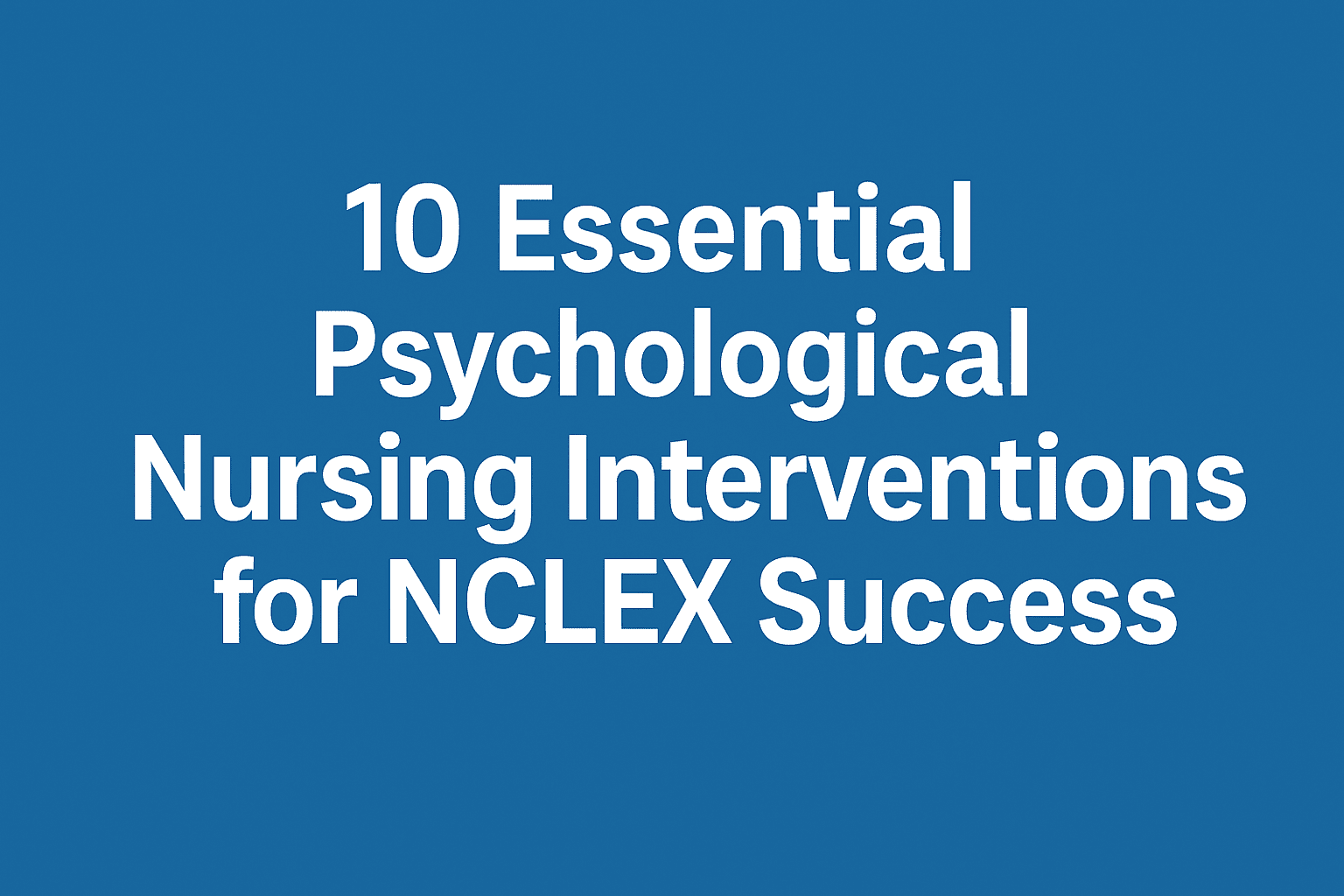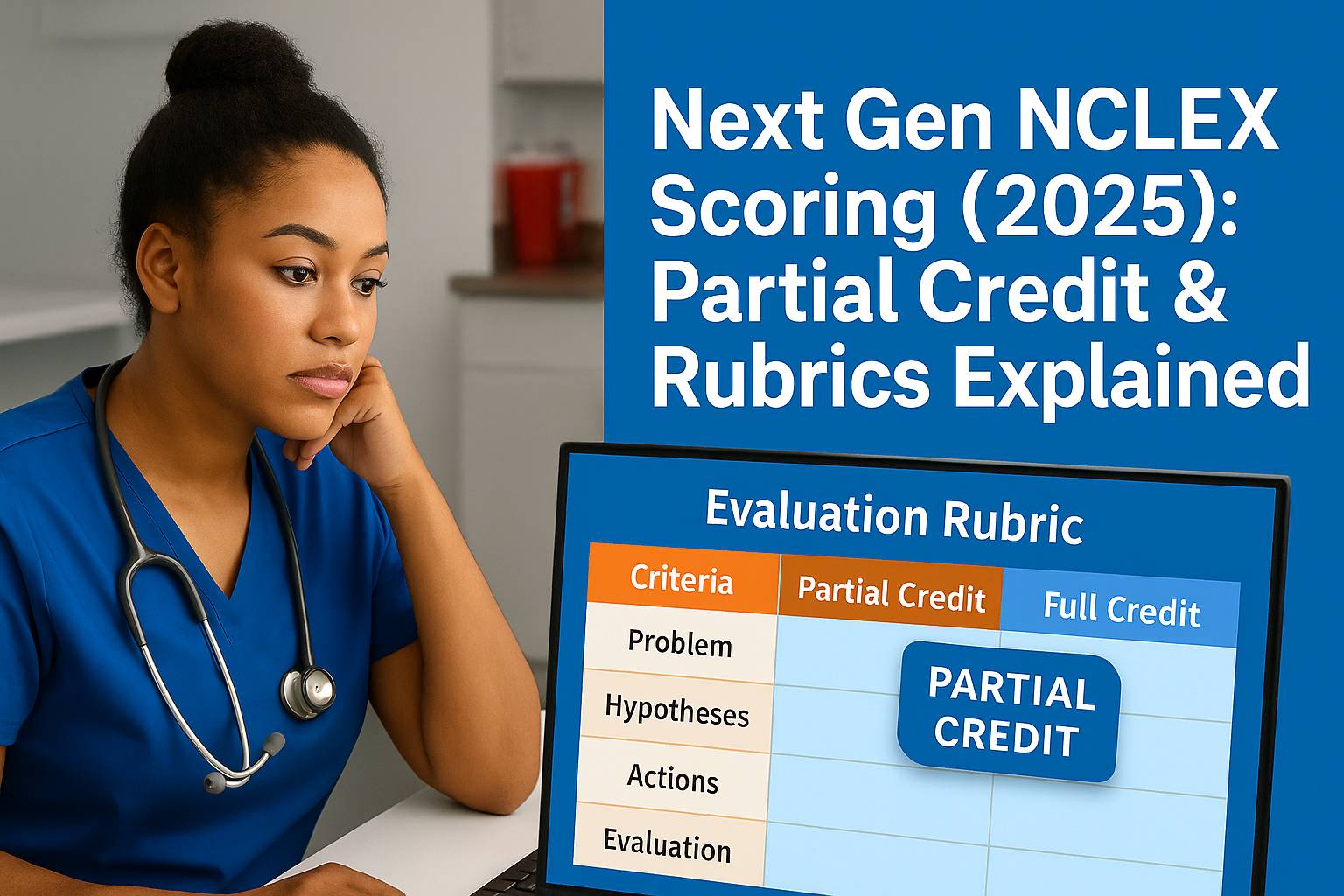Why pediatric NCLEX questions feel different
Children aren’t “small adults.” They have unique developmental, physiologic, and emotional needs. NCLEX pediatrics tests whether you deliver age-appropriate, safe, and family-centered care—using clear communication and sound judgment.
1) Know the developmental stages (high yield)
Age drives priorities, teaching, and safety. Anchor your thinking to the stage.
-
Infants (0–12 mo): Trust, attachment, routine; airway/positioning safety.
-
Toddlers (1–3 yr): Autonomy, ritual; choices with simple words; parallel play.
-
Preschool (3–6 yr): Imagination, language growth; therapeutic play; brief explanations.
-
School-age (6–12 yr): Industry, peers; concrete thinking; involve in simple tasks.
-
Adolescents (12–18 yr): Identity, privacy, risk behaviors; honest, private teaching.
Quick reference: Pediatric Developmental Milestones Cheat Sheet
2) Use ADPIE on every pediatric stem
The nursing process keeps answers logical and safe.
-
Assessment: Vitals, growth trends, milestones, family role/routine.
-
Diagnosis: Risk for injury, ineffective airway clearance, dehydration risk, etc.
-
Planning: Short, realistic, family-centered goals.
-
Implementation: Age-appropriate interventions (play, visuals, parent involvement).
-
Evaluation: Reassess pain, behavior, intake/output, and parent/teen understanding.
Practice step-wise thinking: Analysis & Prioritization
3) Communicate with children and families
-
Simple words; no jargon.
-
Show & tell: dolls, drawings, bubbles reduce fear.
-
Family partners: ask parents about routines, comfort items, triggers.
-
Teen privacy: offer one-on-one time when appropriate; clarify consent policy.
Reinforce: Therapeutic Communication
4) Safety and comfort come first
-
Environment: rails up; correct car seat use; safe restraints per policy.
-
Pain: use age-specific scales; distraction (music, bubbles, storytelling).
-
Meds: verify weight-based doses; double-check high-alert meds.
-
Fluids: infants/young kids dehydrate fast—watch intake/output and trends.
Calculate with confidence: Pediatric Dosage Calculations
5) Think like the exam (clinical judgment)
-
Spot stable vs. unstable, acute vs. chronic.
-
Eliminate anything unsafe or not age-appropriate first.
-
Consider family dynamics before you teach or delegate.
-
Pick the safest first action within scope; reassess outcomes.
Drill patterns: Cue Recognition, Item Types (NGN), Partial-Credit Scoring
Mini practice (with quick rationales)
Q1. A 2-year-old needs an IM vaccine. Best action?
A. Let the toddler choose the site
B. Have a parent hold securely; use distraction ✅
C. Ask the toddler to take deep breaths
D. Explain needle safety in detail
Why: Toddlers need comfort + distraction and safe positioning. Long explanations won’t keep them still.
Q2. A 6-month-old with bronchiolitis: RR 64/min, retractions, poor feeding. First action?
A. Offer oral rehydration
B. Elevate HOB; apply humidified O₂ per protocol ✅
C. Chest physiotherapy
D. Encourage breastfeeding
Why: Airway/oxygenation beats nutrition. Positioning + oxygen supports ventilation.
Q3. School-age with Type 1 DM asks about snacks at soccer. Best response?
A. Avoid snacks to control weight
B. Increase bedtime insulin
C. Carry fast-acting carbs; check glucose before/after practice ✅
D. Snack only if dizzy
Why: Prevent exercise-induced hypoglycemia with planned carbs and monitoring.
Q4. Teen refuses a procedure in front of parents but agrees alone. Best action?
A. Proceed since the teen agreed privately
B. Explore concerns privately; clarify consent per policy ✅
C. Ask parents to sign and continue
D. Tell the teen parents decide
Why: Respect adolescent privacy and follow consent policy; avoid coercion.
More practice: Pediatric Practice Questions
Fast checklist before you pick an answer
-
Name the developmental stage—let it guide the choice.
-
Follow ADPIE; answer for the step you’re in.
-
Choose the safest, age-appropriate action first.
-
Involve the family; protect teen privacy when appropriate.
-
Double-check weight-based meds; watch hydration.
-
Reassess and document: did oxygenation, comfort, or understanding improve?
Keep going with Nurseclex
-
Study Plans (2/4/6-week) • Analysis & Prioritization • Therapeutic Communication
-
Pediatric Dosage Calculations • Cue Recognition • Item Types (NGN) • Cheat-Sheets







